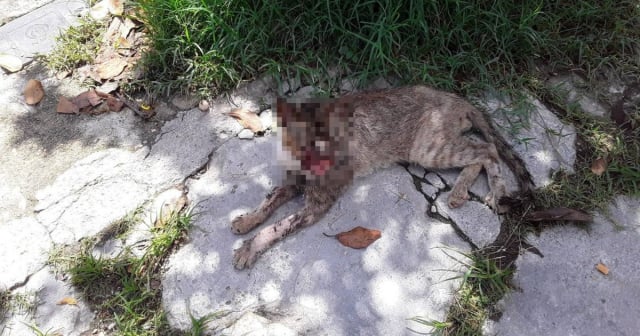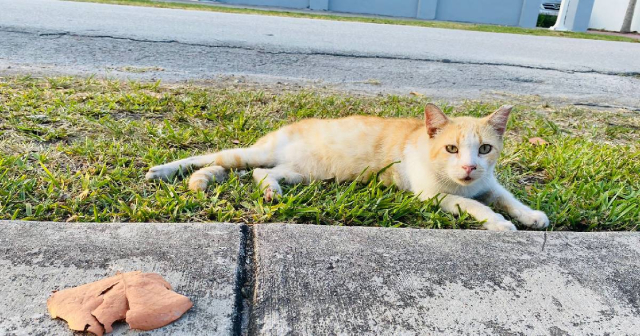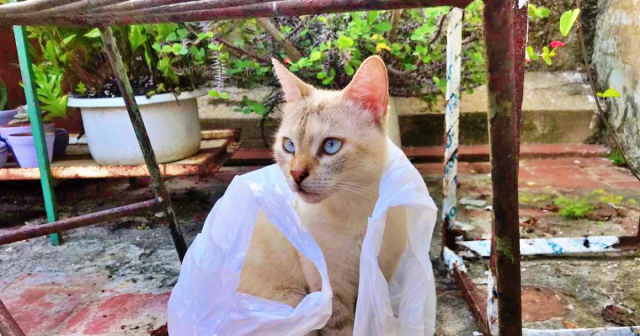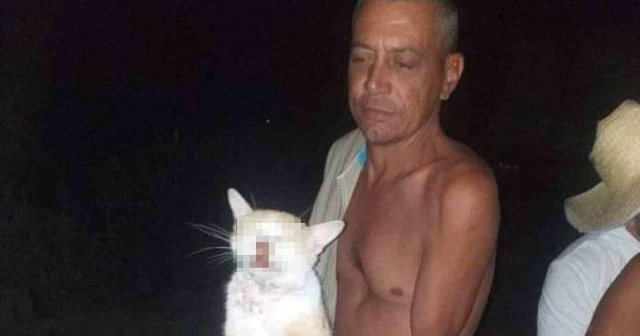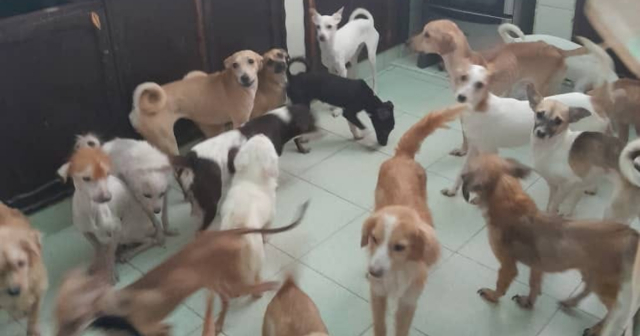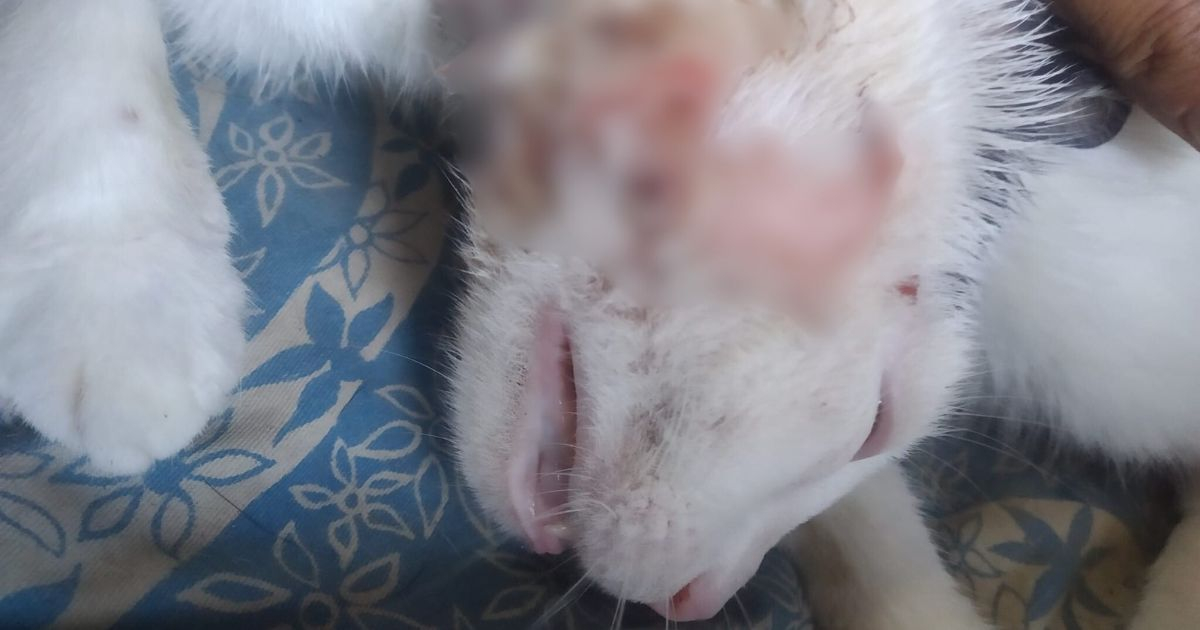
An animal advocate in Havana found a cat in the street, writhing in pain from acid burns, and upon her distress, she did not hesitate for a moment to rescue her.
Yucimì Duarte shared in the Facebook group “Pet Adoptions in Cuba” that the cat, with white fur and impressive green eyes, was able to receive help because she had with her a blanket, some gear, a container of water, and some food.
Graphic Content Warning: This article contains descriptions and images that may be distressing to some readers, as it addresses cases of animal cruelty and serious injuries. Discretion is advised when continuing to read.
“She was like a wild animal,” commented Duarte, who managed to wrap the cat and take her to a safe place, and after sedating her, he discovered that she had been sprayed with acid, which had caused severe injuries to her skin.
Despite the bites and scratches she received during the healing process, the rescuer did not give up and continued with the necessary care.
After seven days in the shelter, the cat started showing signs of improvement. “Today she is a different one,” said the rescuer with relief, explaining that the wounds are healing, and little by little, the skin will begin to regenerate.
"I do not know what she may have done, but the end does not justify the means," said the animal rights activist, whose story has moved many and reflects both the cruelty that animals still face in Cuba and the compassion and determination of those who dedicate themselves to rescuing them, despite the scarcity and shortages.
Recently, animal protectors requested help for a cat that is missing part of its face and was seen on a street in Havana.
Dianeya Pérez reported in the Facebook group "Sociedad Protectora de Animales en Cuba" that the feline was located in Lawton, "on Gertrudis Street between Segunda and Primera."
However, at times, animal rights advocates experience deep frustration over the regime's lack of action in protecting pets.
Protectors have reported that the extreme food shortage in Cuba has led to an increase in the hunting and illegal trade of cat meat in areas like Guantánamo.
The report of this unpleasant and dangerous practice was documented in an article by Food Monitor Program that reflects how food scarcity in the eastern region of the country forces its inhabitants to consume cat meat, compromising public health and violating animal welfare laws.
What do you think?
COMMENTFiled under:

